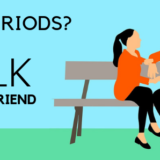𝐇𝐞𝐚𝐥𝐭𝐡𝐲 𝐁𝐨𝐧𝐞𝐬: 𝐇𝐨𝐰 𝐭𝐨 𝐤𝐞𝐞𝐩 𝐭𝐡𝐞𝐦 𝐟𝐢𝐭?

As you age, your bones become thinner and lose their density. We can take steps to halt the “thinning” of bones, called osteopenia, and prevent osteoporosis.
- Eat calcium-rich foods – dairy products, fish with bones such as salmon or sardines, almonds, dried figs, fortified tofu and soy milk
- Take calcium supplements – The U.S. recommended daily allowance for calcium is 1,000 mg a day during your 20s, 30s and 40s. But your need rises as you age. Check with your doctor before starting supplements to find out what amount is right for you. After menopause, most women need 1000 to 1,500 mg a day.
- Add D to your day – To help absorb calcium, most adults need 1,000 to 2,000 IU of vitamin D daily. Combined calcium-vitamin D pills usually do not meet this requirement.
- Start weight-bearing exercises – To boost your bone strength, try exercise that “loads” or compresses your bones. “Running, jogging, high-impact aerobics, repetitive stair climbing, dancing, tennis and basketball are best for building bones. Be sure to clear any exercise plans with your doctor first.
- Don’t smoke, and don’t drink excessively – Bad news for bad habits: Loss of bone mineral density is associated with tobacco use and excessive alcohol consumption.
- Get your bone mineral density tested – Doctors can get a quick and painless “snapshot” of bone health using a simple X-ray test called DEXA. This test measures bone mineral density and helps determine risks of osteoporosis and fracture. Recommended testing for women is within two years of menopause. Earlier tests are recommended for women on long-term steroid therapy.
- Consider medication – Perimenopausal women may consider hormone therapy to increase waning estrogen levels, which are linked to bone loss. Talk to your doctor about other options such as bisphosphonates. None of these medications works without calcium and vitamin D as building blocks.













posted comments